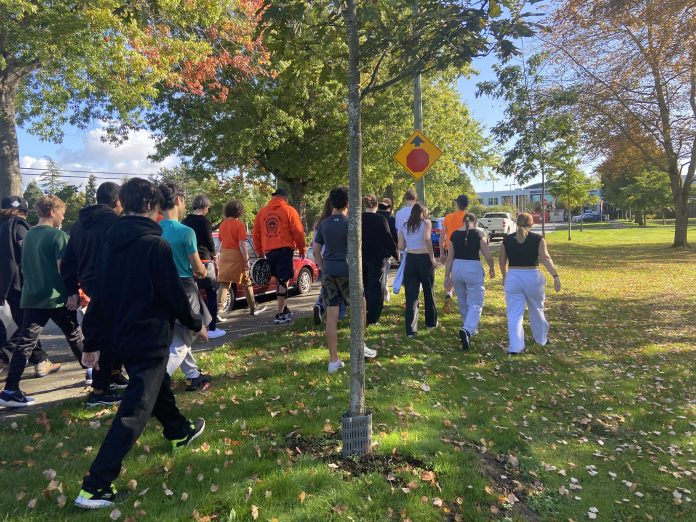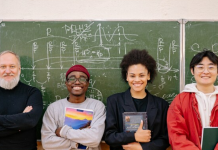Delta – This morning, Delta School District students and staff took part in a Walk for Truth and Reconciliation. Students from Delta Secondary School and several elementary schools in Ladner (Hawthorne, Holly, Ladner, Neilson Grove, and Port Guichon) participated in a walk through Ladner. The walk started at Delta Secondary and ended at Delta Manor Education Centre. Schools in North Delta and Tsawwassen organized walks in their own neighbourhoods.
Following the walk in Ladner, a ceremony hosted by Nathan Wilson, Indigenous Cultural Mentor, took place outside Delta Manor Education Centre. It included words of wisdom from Elder Thelma Stogan, Musqueam Indian Band and Knowledge Keeper, Valerie Cross from Tsawwassen First Nation, as well as words from students and staff. The ceremony was livestreamed to all schools in the district.
“We were inspired to organize this walk and ceremony as a way to honour and show respect for the children who never returned home and for the survivors of residential schools, as well as their families and communities,” said Diane Jubinville, District Principal, Indigenous Education. “We encouraged students and staff to wear an orange shirt. Our hope is that when people across Delta see a stream of students and staff wearing orange walking in their neighbourhood, it reminds them to continue their own journey towards reconciliation. We encourage all Delta residents to honour the National Day for Truth and Recognition and Orange Shirt Day, which fall on Monday, September 30 each year, to increase their understanding of Indigenous history and culture.”
“The Truth and Reconciliation Walk provides a wonderful opportunity for staff and students across the district to actively support Truth and Reconciliation,” said Val Windsor, Chair of the Delta Board of Education. “As a school district, we are committed to supporting the Truth and Reconciliation Calls to Action. We believe that all students and staff will benefit from a deeper understanding of Canada’s history of colonization and its influence on current relationships between Indigenous and non-Indigenous people when they embark on a journey towards reconciliation. It is so important to educate youth on the history of Indigenous Peoples if we are to support healing and reconciliation with our local Indigenous communities.”




